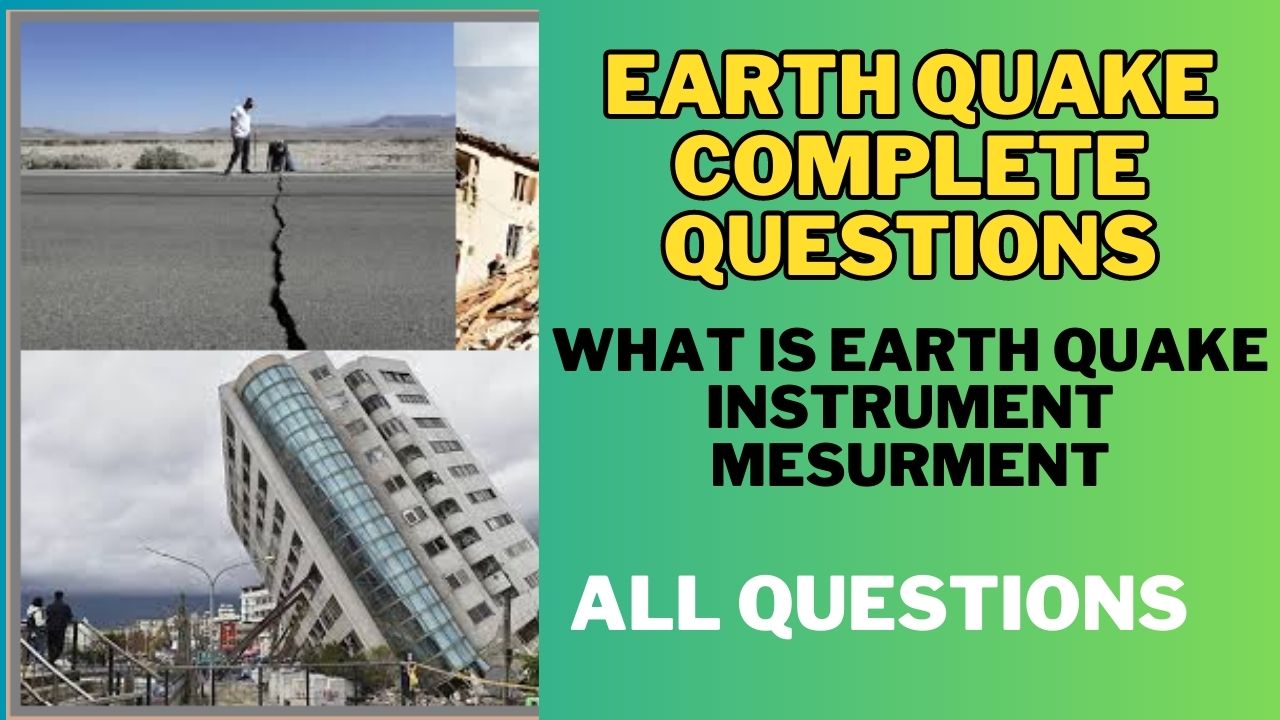What is an earthquake?
An earthquake is a sudden shaking or trembling of the Earth’s surface caused by the movement of tectonic plates or volcanic activity.
What causes earthquakes?
Earthquakes are caused by the movement of tectonic plates, which make up the Earth’s crust. When these plates shift or collide, they can cause seismic waves that create earthquakes.
Where do earthquakes occur?
Earthquakes can occur anywhere on the Earth’s surface, but they are most common along tectonic plate boundaries, such as the Pacific Ring of Fire.
How are earthquakes measured?
Earthquakes are measured using a device called a seismometer, which detects seismic waves created by the earthquake. The magnitude of an earthquake is measured using the Richter scale, which ranges from 1 to 10.
What is the difference between the epicenter and the focus of an earthquake?
The epicenter is the point on the Earth’s surface directly above the focus, which is the point within the Earth where the earthquake originates.
How can earthquakes be predicted?
While scientists can’t predict earthquakes with certainty, they can monitor seismic activity and identify areas that are at higher risk for earthquakes.
What are some of the effects of earthquakes?
Earthquakes can cause a wide range of effects, including damage to buildings and infrastructure, landslides, tsunamis, and loss of life.
What should I do during an earthquake?
During an earthquake, it is important to seek shelter under a sturdy table or desk, stay away from windows and objects that could fall, and protect your head and neck. After the earthquake, be prepared for aftershocks and check for injuries and damage.



